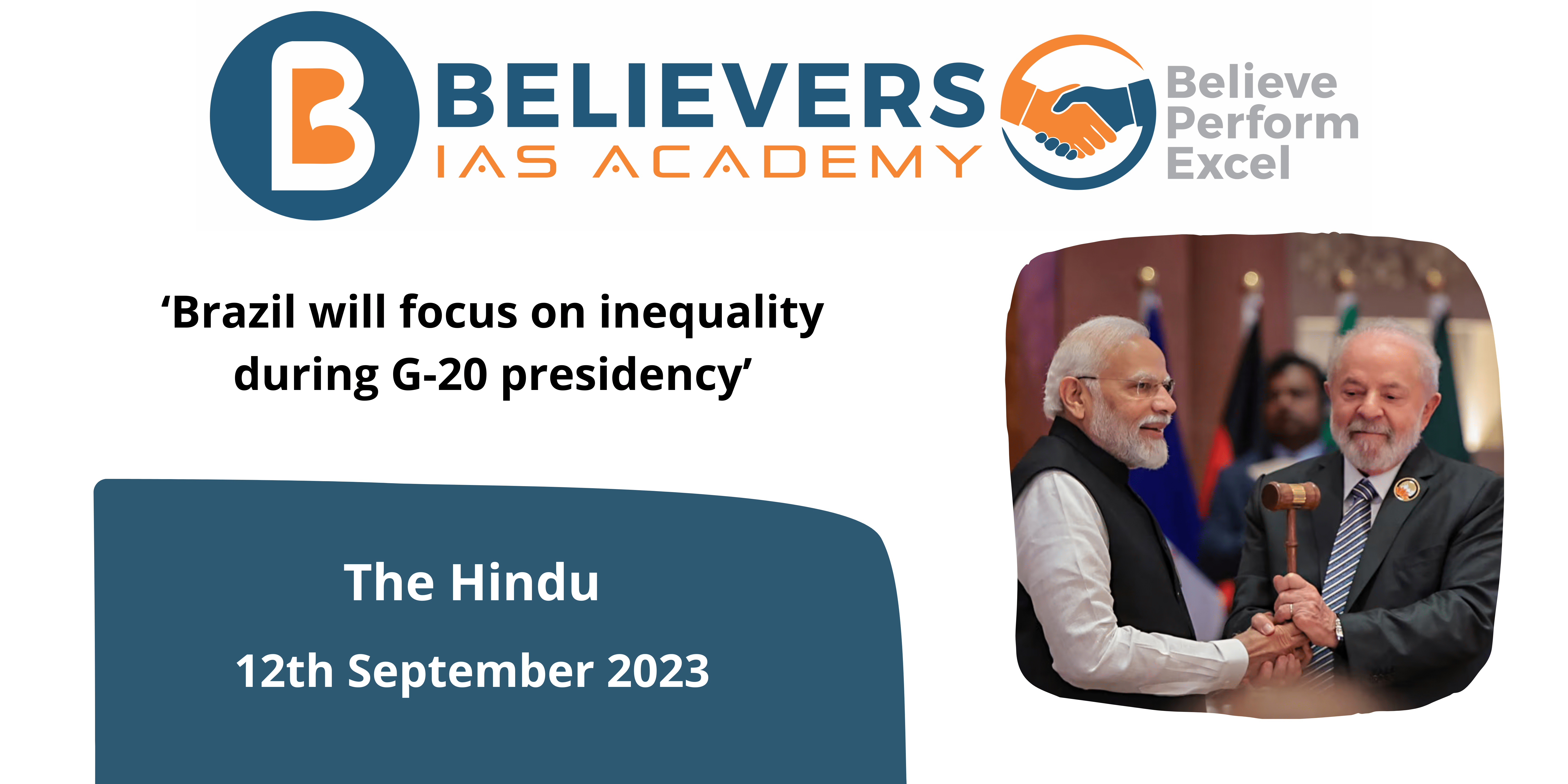‘Brazil will Focus on Inequality During G-20 Presidency’
Context
According to Brazilian President Luiz Inacio Lula da Silva, Brazil’s G-20 chairmanship will be focused on reducing global inequality. Prime Minister Narendra Modi “symbolically” presented him with the official gavel on Sunday. After Mr. Modi hosts a virtual conference of G-20 leaders to follow up on decisions made at the Delhi conference, Brazil will formally assume the Presidency in November.
What would be the focus of the next year’s G20 Presidency?
- Addressing global inequality will be a major emphasis of Brazil’s G-20 leadership, President Lula emphasized. This entails addressing issues of gender, racism, and educational disparities as well as advocating for a more fair allocation of income globally.
What is Brazil’s viewpoint on the International BioFuel alliance?
- Praise for India’s Initiative: President Lula applauded India for taking the International Biofuel Alliance initiative at the G-20. This shows that Brazil views the effort as a constructive move for the G-20.
- Commitment to Continue: President Lula expressed his commitment to the International Biofuel Alliance’s continuation and assistance. This implies that Brazil values the alliance’s objectives and wants to contribute actively to their realization.
- Biofuel Expertise: Brazil is renowned for its proficiency in the development and use of biofuels, particularly fuels based on ethanol. The nation has a sizable biofuel industry and has been a pioneer in this field.
- Global Knowledge Exchange: President Lula’s claim that Brazil has “extraordinary potential in the production of clean energy” and that he wants to work with other nations to make use of that potential suggests that he is open to working with them and exchanging knowledge and experience about biofuels with other alliance members.
Why is Brazil pushing to expand the UN Security Council?
- Representation: Ensuring that the Security Council is more representational of the contemporary global geopolitical situation is one of the main justifications for requesting expansion. The UNSC was created in the wake of World War II, and as a result, its membership no longer accurately reflects the balance of power and influence in the modern world. Expanding the UNSC would give rising and powerful nations like Brazil a stronger voice in questions of international security.
- Geopolitical developments: Since the UNSC was created, there have been substantial geopolitical developments in the world. The idea that emerging powers should have more influence over choices affecting international peace and security has gained traction. Being a member of the BRICS (Brazil, Russia, India, China, and South Africa) group, Brazil thinks it should have a permanent seat on the Security Council to better represent its interests and support efforts to strengthen international security.
- Regional Leadership: Brazil has actively participated in peacekeeping missions and efforts to resolve conflicts in the region, making it a regional leader in South America. Brazil might take a major part in resolving security issues not just in South America but also globally if the UNSC were to be expanded.
- Multilateral diplomacy: Brazil has a long history of supporting multilateral diplomacy and the peaceful settlement of disputes via discussion and negotiation. Brazil would have a platform to advance these ideals and principles on the global scene if it had a permanent seat on the UNSC.
- Economic and Political Power: Brazil is seeking a more significant role in determining international security policies and choices as a result of its expanding economic and political power in Latin America and beyond. Brazil’s influence over these issues would increase if it were given a permanent seat on the UNSC.
Conclusion
Brazil’s aims and ambition for its G-20 presidency are reflected in these priorities and pronouncements, which place a heavy emphasis on reducing inequality, advancing sustainable energy, and engaging with global challenges.




